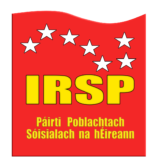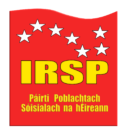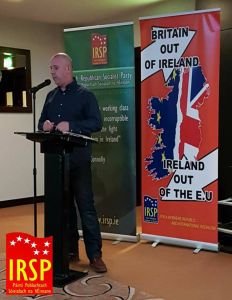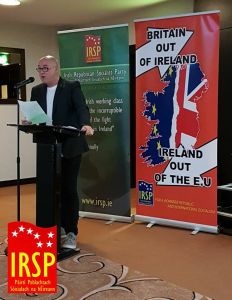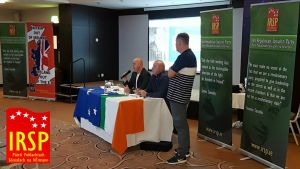The Irish Republican Socialist Party has responded to Peter Robinson and Leo Varadkars comments on scrapping to 50% + 1 threshold for triggering a united Ireland through the Good Friday Agreement Border Poll. The IRSP have said such a move would “seriously destabilise the entire Peace Process.”
Republican socialists have red lines. If it is a Good Friday Agreement “Border Poll” that emerges as the agreed referendum process that’s a compromise we are willing to accept. Demography shows us there is an opportunity to use such a poll as a strategic tool for the creation of a united Ireland.
Yet there are still caveats for principled republicanism and progressive socialism to support a Good Friday Agreement “Border Poll”, we have our demands. We will never accept a “Border Poll” on Irish unity that ignores a 50% + 1 threshold.
Anything other than the 50% + 1 model has the potential to seriously destabilise the peace process by kicking Irish unity down the road for another generation, leading to more decades of political instability within the failed Northern State.
The British government already have access to the census data that will be released by the NI Statistics and Research Agency in 2021. From September to October 2017 a test census was carried out here during which 15,000 people participated in. We believe that this data will clearly indicate the unionist majority has ended. This insight into the census data is driving Unionist fears, they know the union is weak.
On Wednesday evening the IRSP held a public talk and debate in Derry City on the possibility of a Border Poll or Referendum leading to Irish Unity.
“Yes! For Irish Unity” is a public talk and debate organised around the themes of Demographic Shifts, Border Polls, Class and the Irish relationship with the EU.
The idea is to get people talking about what type of society we want to create and making the case for a united Ireland in the interests of the many and not the few.
As different and diverse concepts of Irishness begin to emerge, the contradictions between Old Ireland and a new modern progressive Ireland are leading us to examine our own outlook.
Accepting that demographic shifts are ultimately changing occupied Ireland we must ensure principled republicanism and progressive socialism are not marginalised as the wider debate on a united Ireland continues to develop.
